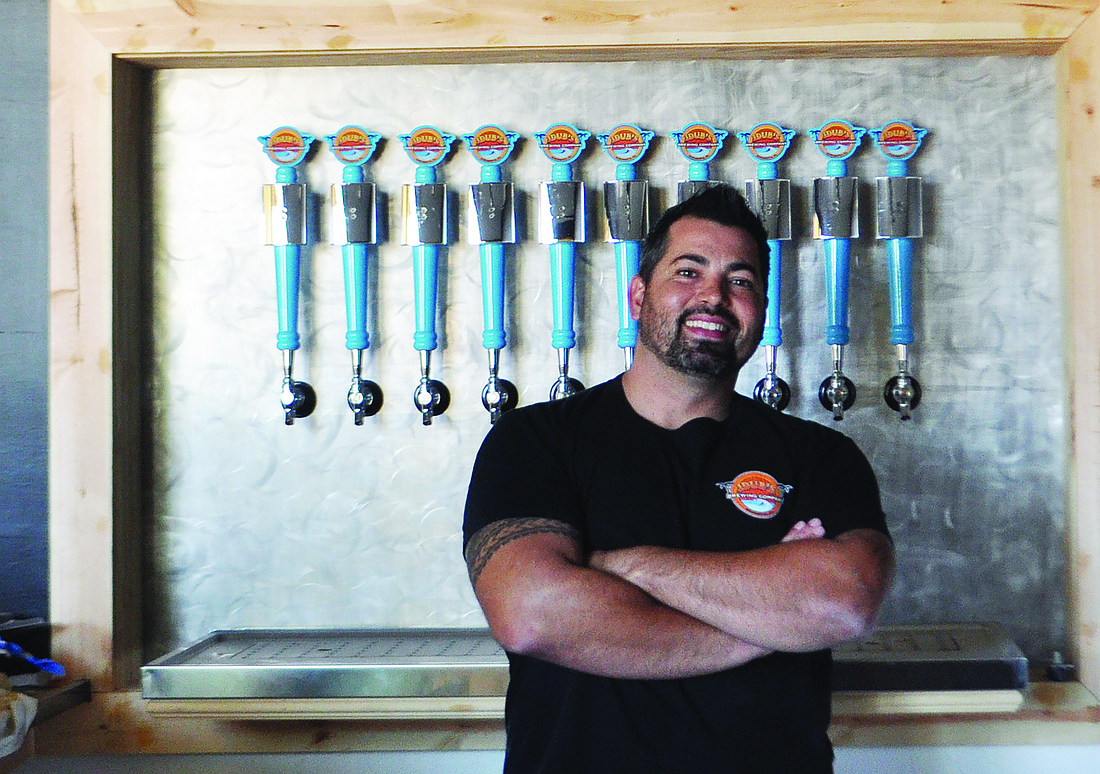- April 19, 2024
-
-
Loading

Loading

When the management of Darwin’s on Fourth announced it was opening a new brewery in Bradenton, some people wondered what it meant for the future of the Sarasota restaurant.
Matt Cornelius, the director of operations for Darwin’s Brewing Co., said the restaurant wasn’t going anywhere, and the Bradenton brewery didn’t signal any dissatisfaction with the city of Sarasota. In fact, the group’s first choice was to open the distribution craft brewery next to Darwin’s on Fourth.
However, the group faced an obstacle in the form of the city’s zoning- and building-code regulations.
Darwin’s is allowed to brew beer to serve at the restaurant, but a larger-scale brewery has to abide by different guidelines. According to the zoning code, breweries are only allowed to operate in areas zoned for manufacturing; the Rosemary District is zoned Downtown Edge for mixed-use properties.
Cornelius said city staff was accommodating in listening to the group’s plans for a brewery, but that the location ultimately didn’t provide the freedom Darwin’s sought.
“I think (staff) had a good understanding of what we were trying to do, and they just said it was something that the code didn’t permit,” Cornelius said. “That was that.”
As a result, Darwin’s expanded its search for a new brewery location up and down the Gulf Coast. It found a taker in Bradenton. Cornelius said the city not only offered incentives for the group to open the brewery — he declined to give specifics — but that David Gustafson, the director of economic development in Bradenton, actively recruited Darwin’s when he heard the restaurant was seeking to tap a new location.
Although Cornelius repeated that Sarasota staff was a pleasure to work with, he said the city could benefit from re-examining its zoning policy to adapt to changing economic climates, particularly when it comes to microbreweries.
“A truth that’s coming into more and more focus is that there’s somewhat of a burgeoning craft-beer industry in the greater Tampa area,” Cornelius said. “I think the cities that are able to craft their local economic policies in a way to provide incentives, those are the ones that are going to see the direct benefit from that sort of growth.”
City Senior Planner Courtney Mendez said, as it stands, making an adjustment to the code to allow for breweries in commercial areas would be difficult. Even if a place such as the Rosemary District asked the city to OK breweries in the area — a move Blue Rooster owner Devin Rutkowski suggested in an interview with the Sarasota Observer — a change to the code would affect all similarly zoned areas surrounding downtown.
A separate challenge arose earlier this year with JDub’s Brewing Co., which became the first distribution brewery to receive approval to operate in the city. It is located on Mango Avenue, near Ed Smith Stadium. According to Mendez, the city and JDub’s had to thoroughly examine the plans for a proposed taproom, in which the brewery could serve its beer to visitors.
JDub’s owner Jeremy Joerger believed the taproom would be an accessory use to the brewery, meaning it didn’t have to go through the same approval process a bar would.
The city disagreed with calling the taproom an accesssory use — customers could come to the brewery just to have a beer. They agreed with Joerger that it wasn’t the same as a bar, either, and eventually created a new usage classification specifically for the the taproom.
Joerger said city staff was helpful in opening the brewery. Mendez and Joerger said they hope the experience with JDub’s will make the process easier for new breweries.
“As long as they’re comfortable with the parameters we have for our taproom, other production brewing companies should be able to open without having to deal with the same hurdles that we had to go through,” Joerger said. “We think we did some good in the city for future breweries.”
JDub’s hopes to begin brewing in January. With construction underway, Joerger said he had no issues with the way the city zones breweries.
“This is a common issue that all breweries operating in Florida have to deal with,” Joerger said. “To be zoned properly, you’re usually in a warehouse somewhere that’s not close to downtown.”
The city is working on a new form-based zoning code that could lessen the emphasis on usage-based regulations and allow for different guidelines in different areas. Still, Urban Design Studio Director Karin Murphy said approved usages will be determined by the will of a given neighborhood. As a result, it’s not guaranteed breweries will have more freedoms under a new code.
“Even though as urbanists, sometimes we’ll say the form is more important than the use, that’s not always the case with the community,” Murphy said.
In the shorter term, Mendez acknowledged the increasing prominence of craft breweries and said the city would consider modifying the code as necessary if trends emerge that demand adjustments.
“It’s just the way it works in the zoning code,” Mendez said. “Needs change, the characters of uses change, and we have to be responsive and look at the code and make changes as they’re appropriate.”
Contact David Conway at [email protected]